<< Previous | Displaying results 151-160 of 571 for "" | Next >>
Niels was raised in a religious Jewish household. In 1932, the family fled to Copenhagen, Denmark, where Niels's father opened an antique store in the mid-1930s. The Germans invaded Denmark in April 1940, but to Niels, little seemed to change during three years of occupation. Upon hearing of German plans to round up Jews in October 1943, Niels and his family decided to flee. A member of the resistance took them to the fishing village of Snekkersten, from where they were able to cross by boat to Sweden.…
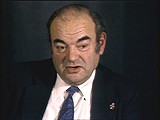
In 1942, Hana was confined with other Jews to the Theresienstadt ghetto, where she worked as a nurse. There, amid epidemics and poverty, residents held operas, debates, and poetry readings. In 1944, she was deported to Auschwitz. After a month there, she was sent to Sackisch, a Gross-Rosen subcamp, where she made airplane parts at forced labor. She was liberated in May 1945.
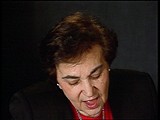
In 1938, Martin's father was imprisoned during Kristallnacht (the "Night of Broken Glass"). Upon the intervention of the family's chauffeur, a gentile, Martin's father was released after three days. The family obtained visas to immigrate to Palestine and left Germany in 1939. Martin aided "illegal" immigrants who defied British restrictions on immigration into Palestine. He was imprisoned by the British in 1947 and forbidden to live in Palestine. He then came to the United States.
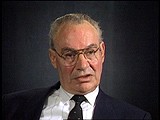
Gerda and her parents obtained visas to sail to Cuba on the "St. Louis" in May 1939. When the ship arrived in Havana harbor, most of the refugees were denied entry and the ship had to return to Europe. Gerda and her parents disembarked in Belgium. In May 1940, Germany attacked Belgium. Gerda and her mother escaped to Switzerland. After the war, they were told that Gerda's father had died during deportation.
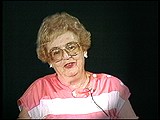
Norbert was 3 years old when Germany invaded Poland in September 1939. He and his mother were in Warsaw; his father had been drafted into the Polish army and later ended up in Vilna. Norbert and his mother set out to join him and the family was reunited after a few months. After the family had been in Vilna for about a year, Norbert's father was able to obtain visas for Curacao in the Dutch West Indies and visas for transit through Japan. Norbert and his parents left Vilna in January 1941, and arrived in…
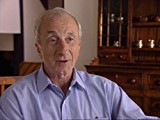
As prewar antisemitism intensified, Hessy's family fled from Germany to Paris, France. France fell to the German army in June 1940. Hessy's family was smuggled into the "zone libre" (free zone) in southern France. The family received a US visa in 1941, but was unable to leave before the visa expired and could not obtain an extension. In 1942, the family obtained visas to enter Cuba, where they settled before immigrating to the United States in 1949.
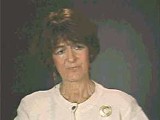
As prewar antisemitism intensified, Hessy's family fled from Germany to Paris, France. France fell to the German army in June 1940. Hessy's family was smuggled into the "zone libre" (free zone) in southern France. The family received a US visa in 1941, but was unable to leave before the visa expired and could not obtain an extension. In 1942, the family obtained visas to enter Cuba, where they settled before immigrating to the United States in 1949.
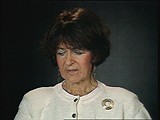
Lisa was one of three children born to a religious Jewish family. Following the German occupation of her hometown in 1939, Lisa and her family moved first to Augustow and then to Slonim (in Soviet-occupied eastern Poland). German troops captured Slonim in June 1941, during the invasion of the Soviet Union. In Slonim, the Germans established a ghetto which existed from 1941 to 1942. Lisa eventually escaped from Slonim, and went first to Grodno and then to Vilna, where she joined the resistance movement. She…
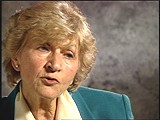
Both of Charlene's parents were local Jewish community leaders, and the family was active in community life. Charlene's father was a professor of philosophy at the State University of Lvov. World War II began with the German invasion of Poland on September 1, 1939. Charlene's town was in the part of eastern Poland occupied by the Soviet Union under the German-Soviet Pact of August 1939. Under the Soviet occupation, the family remained in its home and Charlene's father continued to teach. The Germans…
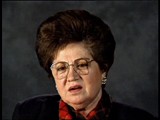
Ben was born in a small village in the Carpathian Mountains of Transylvania in Romania. When he was an infant, his family moved to the United States. Ben attended Harvard University, where he studied criminal law. Ben graduated from Harvard University Law School in 1943. He joined a US anti-aircraft artillery battalion that was training in preparation for an Allied invasion of western Europe. At the end of World War II in Europe, Ben was transferred to the war crimes investigation branch of the US Army. He…
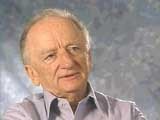
We would like to thank Crown Family Philanthropies, Abe and Ida Cooper Foundation, the Claims Conference, EVZ, and BMF for supporting the ongoing work to create content and resources for the Holocaust Encyclopedia. View the list of donor acknowledgement.